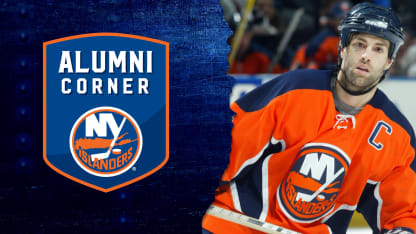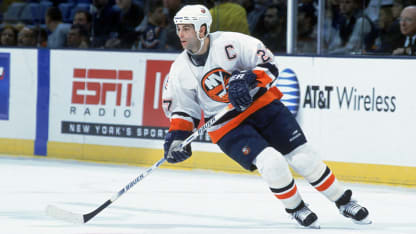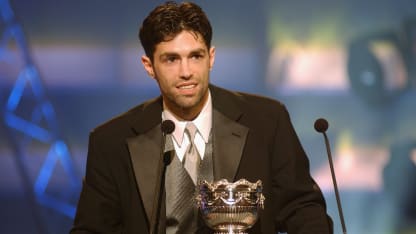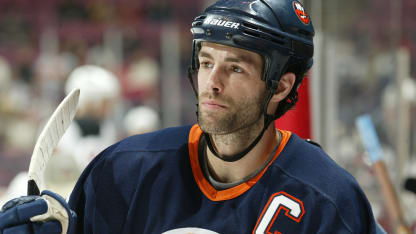Peca's arrival was not the sole change that occurred at the time. Peter Laviolette was named head coach, while Alexei Yashin and Chris Osgood came in as marquee acquisitions. Despite a multitude of changes in the offseason, things quickly clicked for the Isles that fall, as they started the season 9-0-1-1 (W-L-T-OTL).
"I just looked at it as a fresh new opportunity," Peca said. "Obviously, there was going to be a new coaching staff. There were a handful of new players. There was me, Shawn Bates, Chris Osgood. There were a number of guys that we knew of coming in. We all looked at is as a challenge and looked forward to it coming in. The thing that made it great was that we were just such a close team. To be one of the leaders and captains of that was not too difficult."
ALUMNI CORNER: RAY FERRARO | KELLY HRUDEY
With Peca wearing the 'C', the Islanders had tremendous success after finishing second in the Atlantic Division with a 96-point regular season (42-28-8-4) and their first berth to the playoffs in seven years. Individually, Peca fondly known as "Captain Crunch," set personal highs in both assists (35) and points (60) and claimed the Frank J. Selke Trophy for the second time in his career. A successful regular season was cut short, as the Isles fell to the Toronto Maple Leafs in seven games during a brutally physical first round - with Peca suffering a torn ACL in game five.
"I just remember there was tons of energy," Peca said. "The games in Toronto, the games on Long Island, there was just a ton of energy in the series. Obviously, it was a very, very close series. [There were] some disappointing things for me personally. Going out with a season-ending injury [torn ACL in Game 5] in a series like that when we had such a great year, it felt like we could beat anybody that season. That was the low point of the season for me."






















